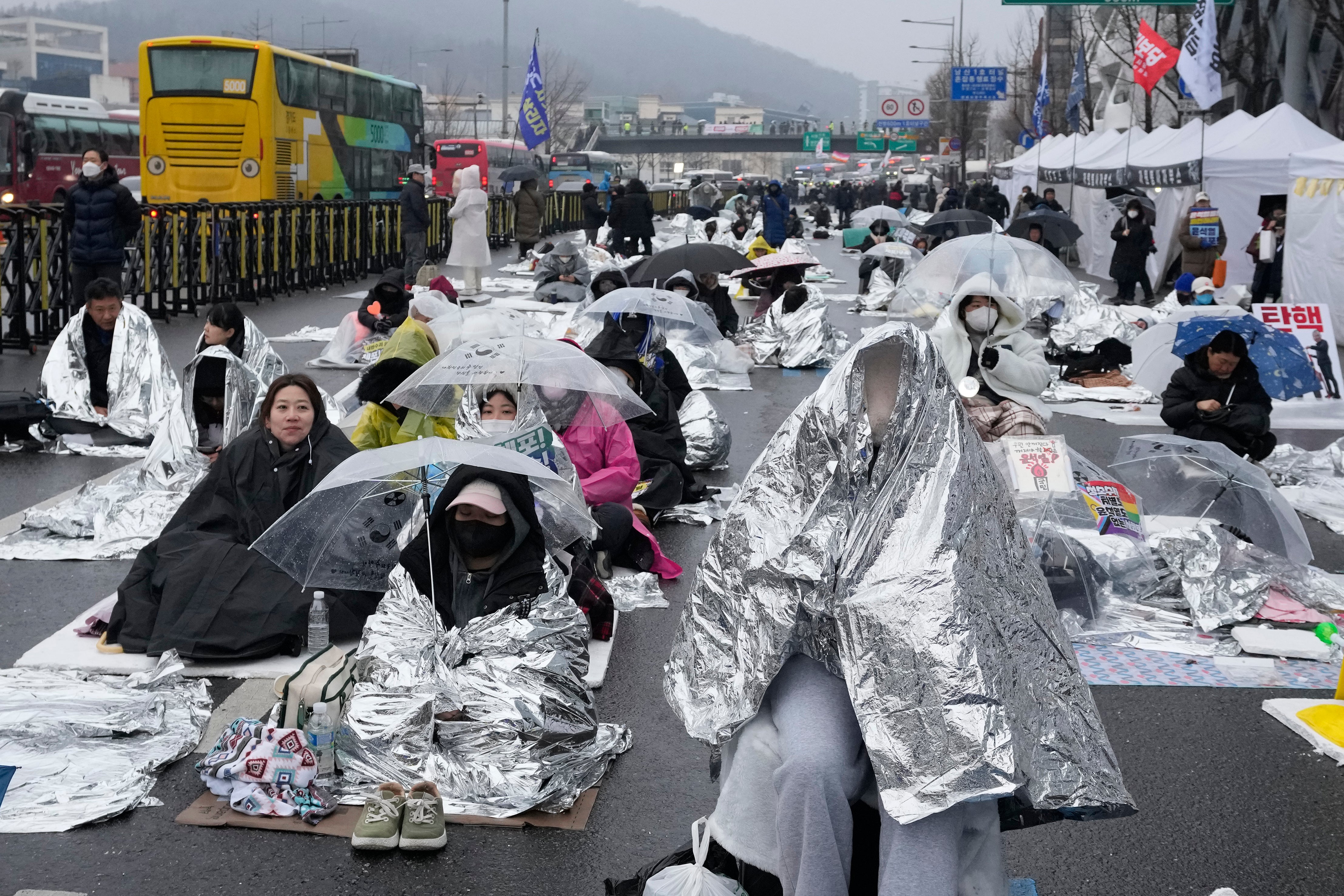Investigators in South Korea are seeking an extension to the arrest warrant for suspended president Yoon Suk Yeol, after a dramatic standoff that ended in their failure to take him into custody.
The country’s anti-corruption agency has asked the police to take over the execution of the warrant, which was due to expire at midnight local time on Monday.
“The validity of the warrant expires today. We plan to request an extension from the court today,” Lee Jae Seung, deputy director of the Corruption Investigation Office, or CIO, said. The CIO had sought police assistance to detain Mr Yoon and would coordinate with them regarding the extension, he added.
Police have reportedly raised legal concerns about the request to take over Mr Yoon’s arrest, and instead opted to consult with the CIO while maintaining a joint investigation team with the defence ministry.
Mr Yoon has resisted efforts to detain him, and the impeached leader remains holed up inside the presidential palace, where his security service prevented investigators from executing the arrest warrant on Friday, leading to a six-hour standoff.
The CIO said earlier in a statement that it had notified the police to take charge of executing the warrant for the president. The warrant was issued by the Seoul Western District Court on 31 December after Mr Yoon repeatedly failed to comply with the CIO’s summons for questioning over his shortlived declaration of martial law earlier that month.
“The CIO sent us an official letter requesting our cooperation without prior consultations,” a police official told the state news agency Yonhap. “We are internally carrying out a legal review.”
Mr Yoon imposed martial law on 3 December but it was quickly overturned by the parliament, despite attempts by the security forces to prevent lawmakers from voting.

Mr Yoon’s lawyers maintain that the warrant is “illegal” and are pursuing further legal action. Mr Yoon’s legal team filed complaints on Monday against the head of the anti-corruption agency, Oh Dong-woon, and 10 others over last week’s failed attempt to detain him, local media reported.
Regarding the plans to extend the arrest warrant, Mr Yoon’s lawyer, Yun Gap-keun raised an objection calling it judicial overreach. “Watching the CIO’s investigative behaviour that lacks legal grounds raises doubts about its qualifications and abilities as a state agency,” he said in a statement.
South Korea’s Constitutional Court has scheduled Mr Yoon’s impeachment trial to start on 14 January, and it will proceed in his absence if he chooses not to attend.
On Monday, around 30 lawmakers from the ruling party staged a protest outside the presidential palace, opposing efforts to detain Mr Yoon. Last Friday, the CIO aborted an attempt to arrest the suspended president after a standoff with presidential security staff.
“The CIO is pretending as if it has the right to exercise the authority over investigations when it does not have the rights,” representative Kim Gi-hyeon of the ruling People Power Party (PPP) said.
PPP’s interim leader, Kwon Young-se told reporters that “the warrant itself is problematic because the CIO does not have the authority to investigate (insurrection charges), and it has no authority to subcontract it to the police”.
Hundreds of South Koreans braved freezing temperatures overnight, demanding Mr Yoon’s ouster and arrest over his short-lived martial law decree on 3 December. “With barely a day left before the execution deadline for Yoon Seok Yeol’s detainment warrant, the presidential security service continues to hide a criminal and the Corruption Investigation Office for High-Ranking Officials cannot be more relaxed,” Kim Eun-jeong, an activist said on Sunday.
The Associated Press reported that the presidential security staff was seen installing barbed wire around the suspended president’s residence, possibly in anticipation of yet another detention attempt.
Park Chan-dae, floor leader of the main opposition Democratic Party urged the anti-corruption agency to proceed quickly to detain Mr Yoon. He accused the agency of “hesitating and letting time slip away”.
Meanwhile, US secretary of state Antony Blinken is visiting Seoul to meet top officials and reaffirm the US-South Korea alliance amid the country’s political turmoil. He is also holding talks with South Korean officials regarding North Korea’s nuclear programme even as Pyongyang fired an intermediate-range ballistic missile on Monday. The launch was the first in about two months and just weeks away from Donald Trump taking over the White House.
Additional reporting by agencies







